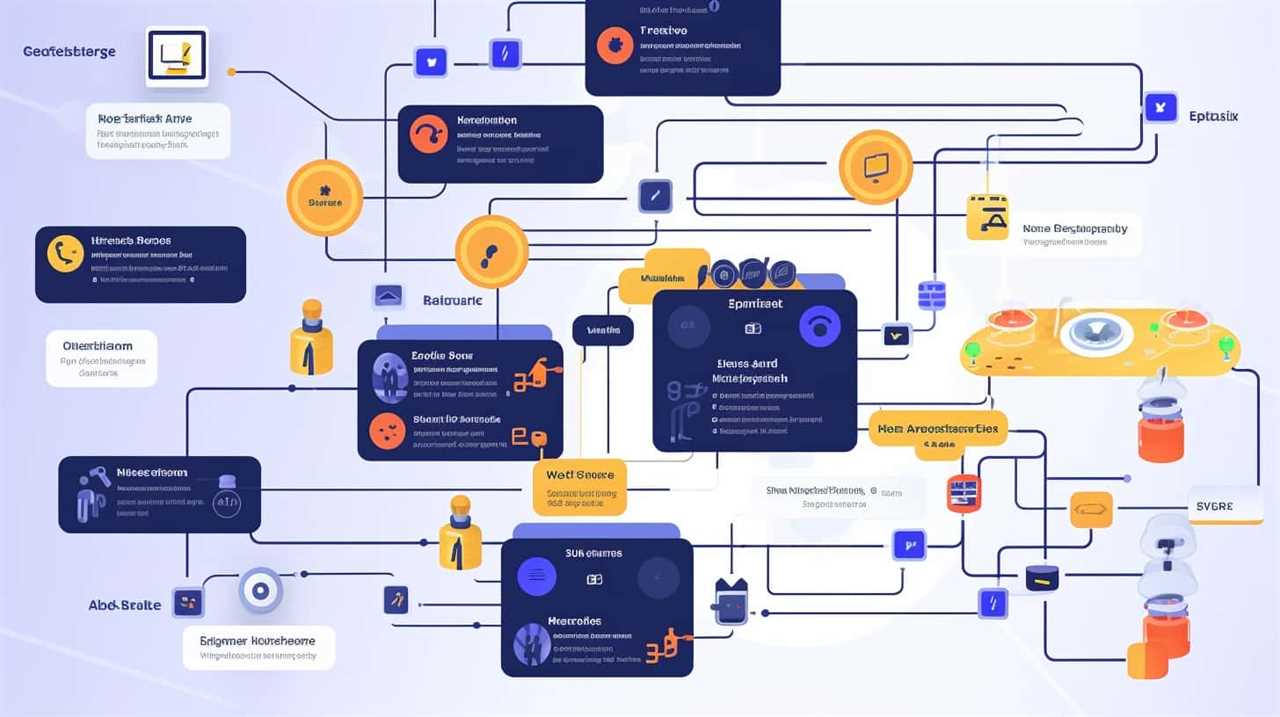In our pursuit of improving our website, it’s essential that we utilize the best resources available to us. This is exactly what on-page tools are designed to do.
These nifty resources help us improve our website’s performance and visibility in search engine results. By utilizing on-page tools, we can enhance our website’s content, meta tags, and overall user experience.
In this article, we’ll explore the importance, key elements, types, and benefits of using on-page tools, while also sharing best practices for implementation.
Let’s dive in and master the art of on-page optimization!

Key Takeaways
- On-page optimization is crucial for improving website performance and user experience.
- Well-optimized websites have a higher chance of ranking higher in search engine results.
- On-page optimization directly impacts search engine rankings.
- Effective on-page optimization techniques attract organic traffic and improve visibility.
Importance of On-Page Optimization
On-page optimization plays a crucial role in improving website performance and enhancing user experience. When it comes to mobile devices, on-page optimization techniques are even more important.
With the increasing use of smartphones and tablets, it’s vital to ensure that websites are optimized for mobile viewing. This includes implementing responsive design, optimizing page loading speed, and creating mobile-friendly content.
By optimizing for mobile devices, websites can provide a seamless user experience and increase their chances of ranking higher in search engine results. In fact, on-page optimization has a direct impact on search engine rankings. Search engines prioritize websites that are well-optimized and provide a positive user experience.
Therefore, implementing effective on-page optimization techniques is essential for improving visibility and attracting organic traffic.

Now, let’s explore the key elements of on-page tools.
Key Elements of On-Page Tools
To continue our discussion from the previous subtopic, there are several key elements that make up effective on-page tools. These elements play a crucial role in optimizing a website for search engines. Let’s take a look at a comprehensive guide to on-page tools and their role in SEO optimization:
| Element | Description | Importance |
|---|---|---|
| Meta Tags | HTML tags that provide information about a webpage | Essential |
| Header Tags | HTML tags used to structure content and highlight important sections | Important |
| Keyword Optimization | Strategically placing relevant keywords throughout the content | Crucial |
| Content Quality | Providing valuable, informative, and engaging content | Vital |
These key elements work together to enhance a website’s visibility, relevance, and user experience. By utilizing on-page tools effectively, websites can improve their search engine rankings and attract more organic traffic. In the next section, we will delve into the different types of on-page tools and how they can be utilized to maximize SEO efforts.
Types of On-Page Tools
Now let’s explore the different types of on-page tools that are crucial for optimizing a website’s performance and driving organic traffic.

When it comes to on-page tool features, there are several key categories to consider:
- Content Analysis Tools:
- These tools help you analyze the quality and relevance of your website’s content, including keyword usage, readability, and SEO optimization.
- Technical SEO Tools:
- These tools focus on the technical aspects of your website, such as website speed, mobile-friendliness, and URL structure, to ensure optimal performance.
- Keyword Research Tools:
- These tools assist in identifying relevant keywords and phrases that can improve your website’s visibility and ranking in search engine results.
When it comes to the on-page tool selection process, it’s important to consider factors such as ease of use, integration with other tools, cost, and customer support.
Benefits of Using On-Page Tools
We can reap numerous benefits by utilizing on-page tools in optimizing our website’s performance and driving organic traffic.
One of the main benefits of on-page analysis is the ability to identify and fix any issues or errors that may be hindering our website’s performance.

By using on-page optimization techniques, we can improve our website’s visibility in search engine results and attract more organic traffic.
These tools also provide valuable insights into our website’s user experience, helping us make informed decisions to enhance usability and increase conversions.
Additionally, on-page tools help us optimize our content for relevant keywords, improving our website’s ranking and attracting targeted traffic.
Best Practices for Implementing On-Page Tools
By following these best practices, we can effectively implement on-page tools to optimize our website’s performance and drive organic traffic.

To maximize the potential of on-page tools, it’s important to avoid common mistakes that can hinder their effectiveness.
Here are some best practices to consider:
- Conduct thorough keyword research to identify relevant and high-performing keywords.
- Optimize meta tags, including title tags and meta descriptions, with targeted keywords to improve search engine visibility.
- Create unique and compelling content that provides value to users while incorporating keywords naturally.
By implementing these best practices, we can ensure that our on-page tools work in harmony to enhance our website’s performance and attract organic traffic.
It’s essential to regularly monitor and analyze the results to make necessary adjustments and continuously improve our on-page optimization strategy.

Frequently Asked Questions
How Do I Choose the Right On-Page Tools for My Website?
When it comes to choosing the right on-page tools for website optimization, understanding the benefits of these tools for SEO is crucial.
We need to carefully consider the specific needs of our website and the goals we want to achieve. By evaluating features such as keyword research, content analysis, and technical optimization, we can find tools that align with our objectives.
It’s important to prioritize user-friendly platforms that provide accurate data and actionable insights.
Can I Use On-Page Tools for Mobile Optimization?
Yes, we can definitely use on-page tools for mobile optimization.

When it comes to mobile optimization, it’s crucial to have a mobile-friendly design and implement mobile SEO techniques.
On-page tools can help us achieve this by optimizing our website’s content, meta tags, and images specifically for mobile devices.
Is It Necessary to Have Technical Knowledge to Use On-Page Tools Effectively?
Understanding the importance of technical knowledge in using on-page tools effectively is crucial. Without this knowledge, it’s challenging to comprehend the impact of on-page optimization on SEO rankings.
To master the art of on-page optimization, one must learn the technical aspects of these tools. By doing so, we can make informed decisions and implement strategies that will greatly improve our website’s visibility and ranking in search engine results.

Technical knowledge is an essential component for effectively utilizing on-page tools.
Are On-Page Tools Suitable for All Types of Websites?
On-page tools can be suitable for all types of websites, but there are pros and cons to consider.
Some websites may benefit greatly from using on-page tools, such as niche websites that have specific target audiences.
For example, a niche website selling handmade jewelry can use on-page tools to optimize their product pages and improve search engine rankings.

However, larger e-commerce websites with thousands of products may find it more challenging to implement on-page tools effectively across all their pages.
Can On-Page Tools Help Improve My Website’s Loading Speed?
Improving website loading speed is a crucial factor in enhancing user experience and SEO rankings. On-page tools can have a significant impact on this aspect.
By implementing best practices for optimizing loading speed, such as compressing images, minifying code, and leveraging browser caching, on-page tools can help boost website performance.
These tools provide an effective means to enhance loading speed and ultimately improve the overall user experience of your website.

Conclusion
In conclusion, on-page tools are an absolute game-changer for optimizing your website. They’re the secret weapons that can skyrocket your search engine rankings and drive massive traffic to your site.
With their help, you can effortlessly fine-tune your content, meta tags, URLs, and more. Don’t miss out on the incredible benefits they offer.
Implement on-page tools today and watch your website soar to new heights!










